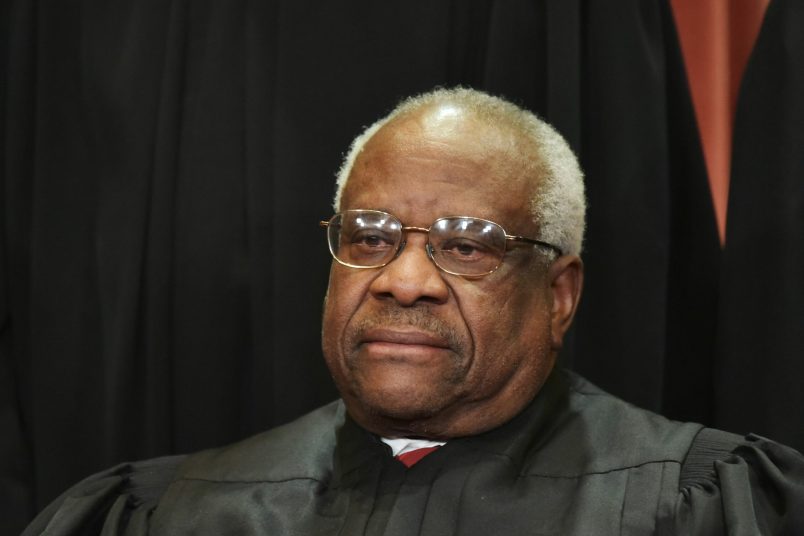It’s been rather tidy to encapsulate conservative opposition to Roe as one decision gone way too far that marks a fork in the road of modern jurisprudence.
But Justice Thomas’ concurring opinion in Dobbs today makes clear that the true fork in the road for diehards came at least a decade before Roe, with a series of substantive due process cases that protected the rights to contraception and private sex acts and extended all the way to 2015 with the right to same-sex marriage.
The entire line of substantive due process cases is now under attack. Or as Thomas puts it, what he calls the “legal fiction” of substantive due process is “particularly dangerous” and he favors “jettisoning the doctrine entirely.”
How explicit is Thomas? Very.
For that reason, in future cases, we should reconsider all of this Court’s substantive due process precedents, including Griswold [contraception], Lawrence [sodomy], and Obergefell [same sex marriage]. Because any substantive due process decision is “demonstrably erroneous,” we have a duty to “correct the error” established in those precedents.
Thomas notably omits Loving (interracial marriage) from his analysis. In his own concurrence, Kavanaugh highlights Loving and other important substantive due process in assuring the public that today’s majority decision in Dobbs leaves them untouched. “I emphasize what the Court today states: Overruling Roe does not mean the overruling of those precedents, and does not threaten or cast doubt on those precedents,” Kavanaugh wrote.
Part of the value of stare decisis is the certainty and predictability it provides. Overruling precedent rarely involves a small tweak to jurisprudence or a minor tweak to our understanding of the Constitution. Dobbs is illustrative in this regard. In the mind of Thomas, America is like Bugs Bunny. It made a wrong turn in Albuquerque 50 or 60 or 75 years ago and has been on the wrong track ever since. Today’s decision sends us backtracking through decades of jurisprudence, livelong decisions, and public policy choices to resume on a new uncharted path where there is no substantive due process.






